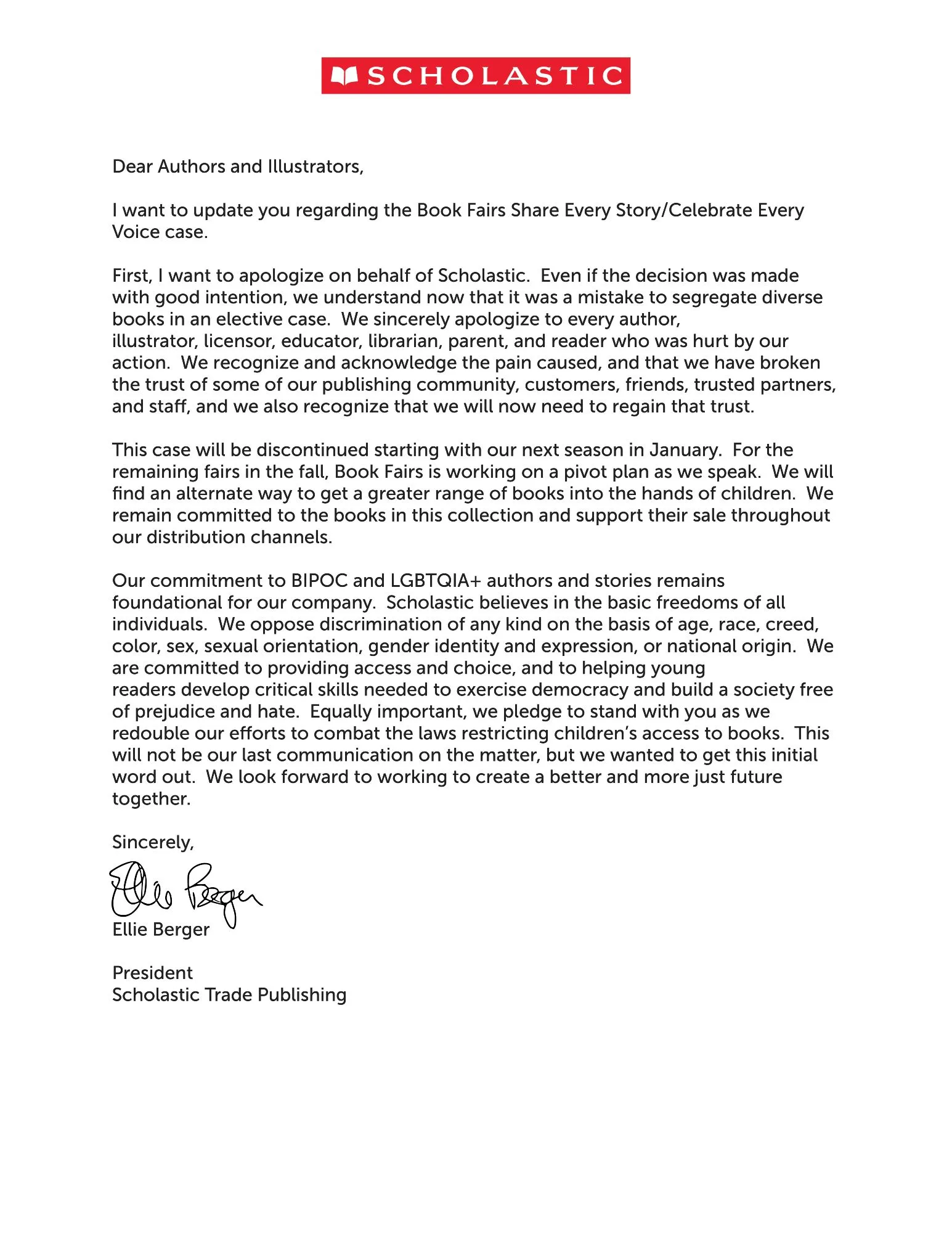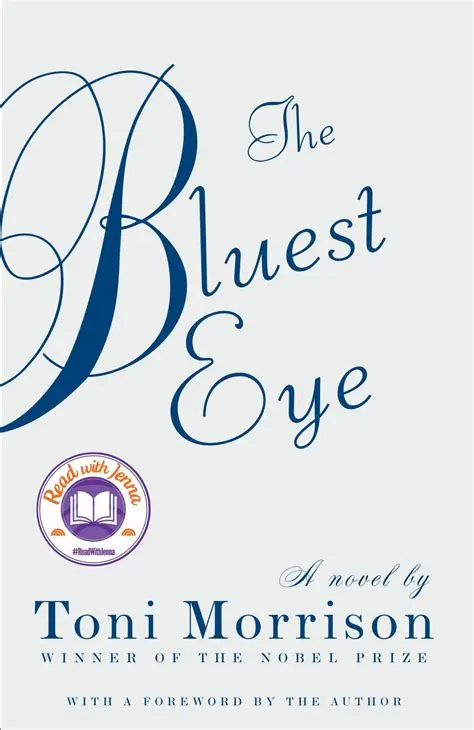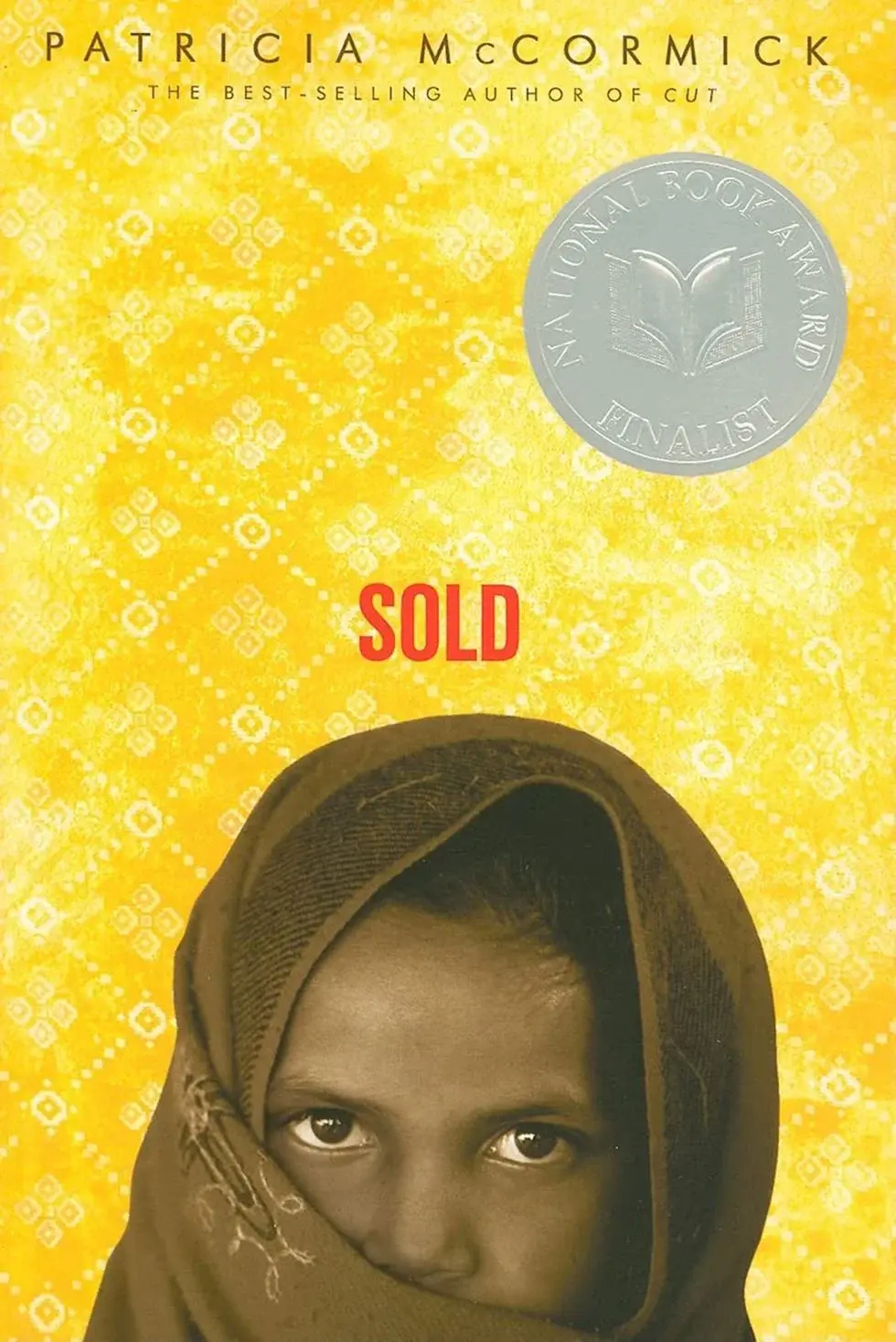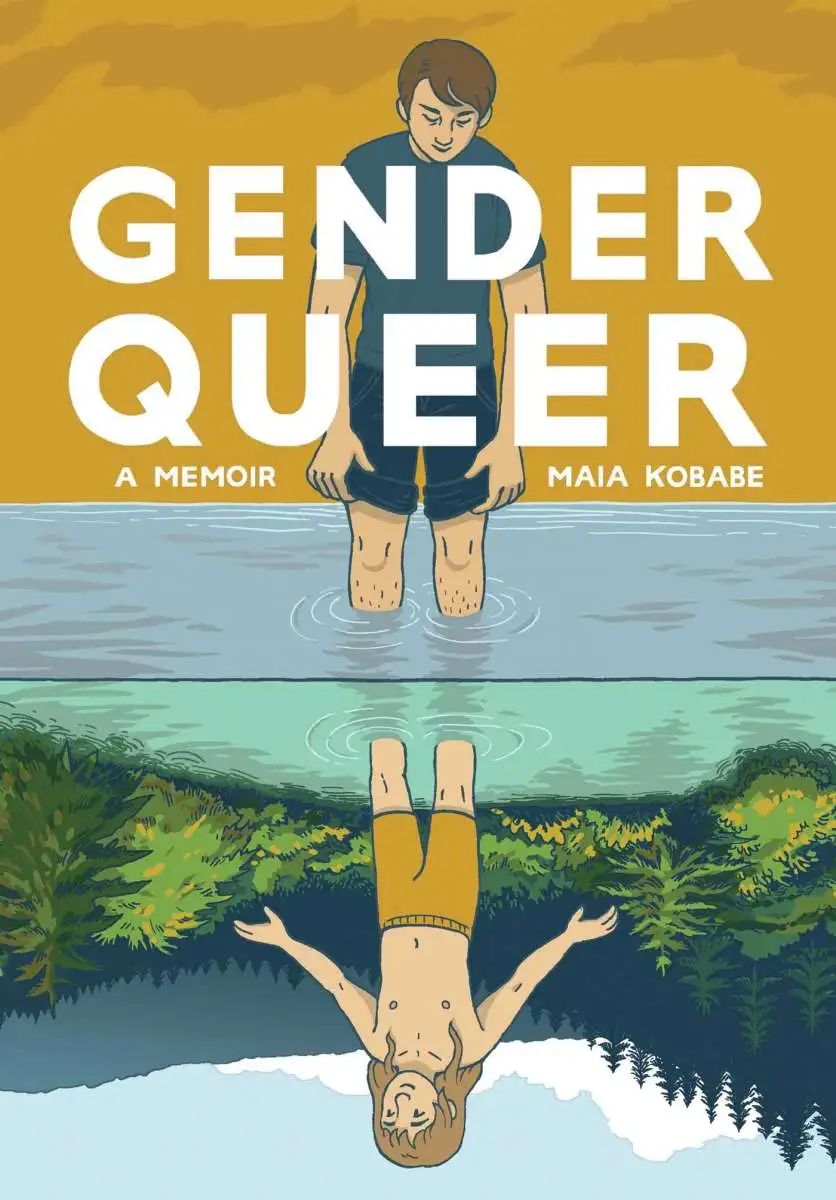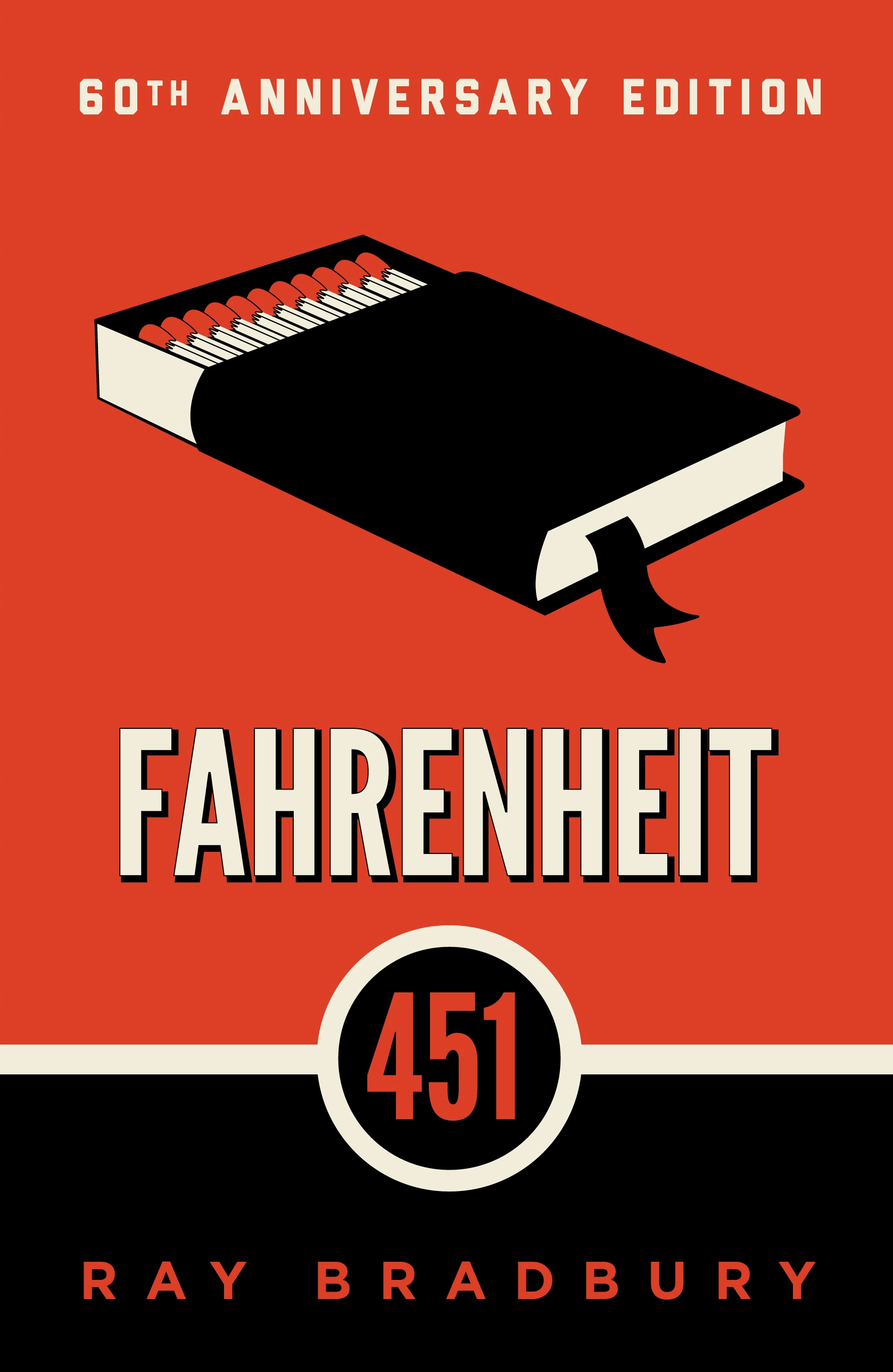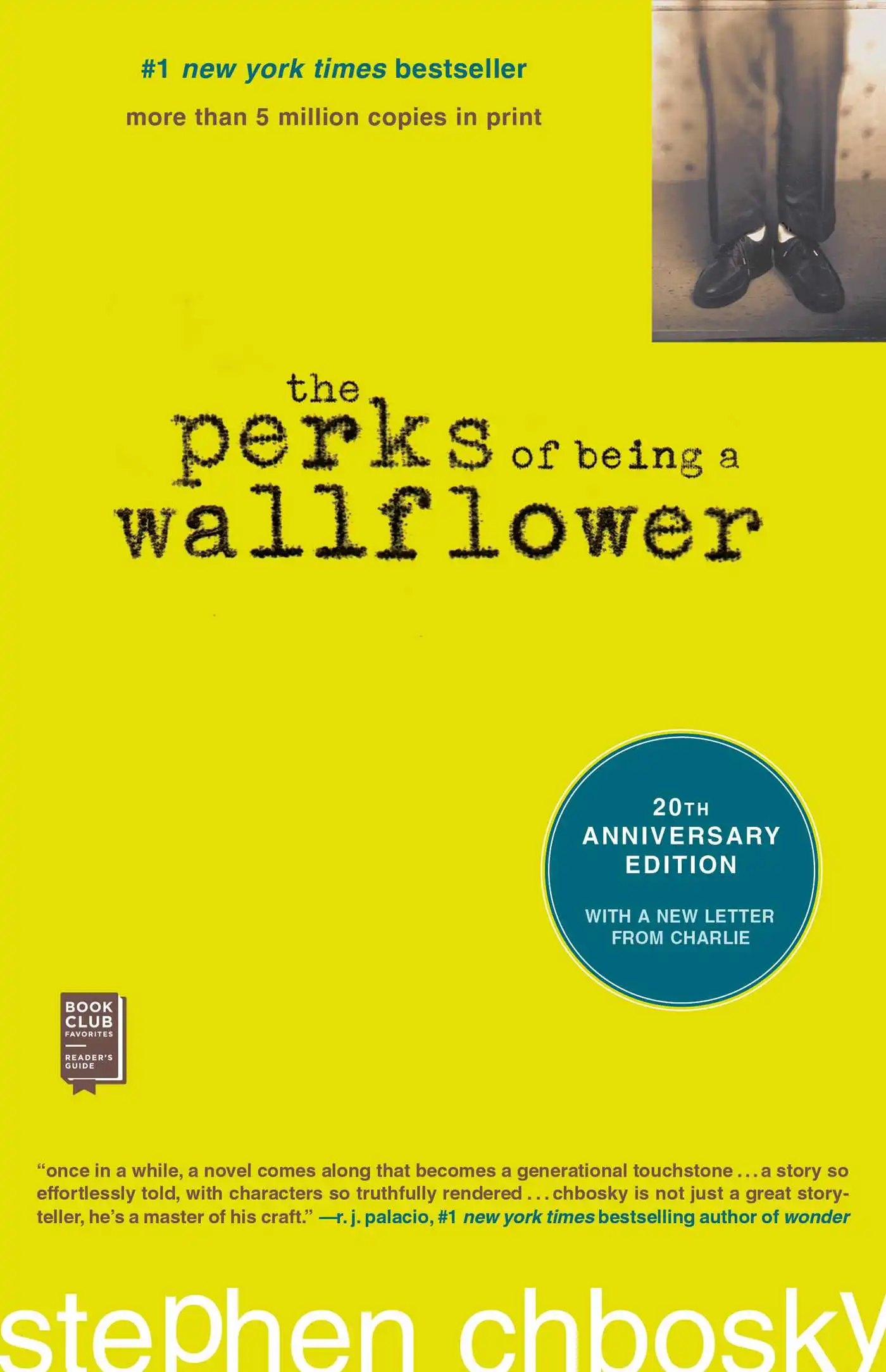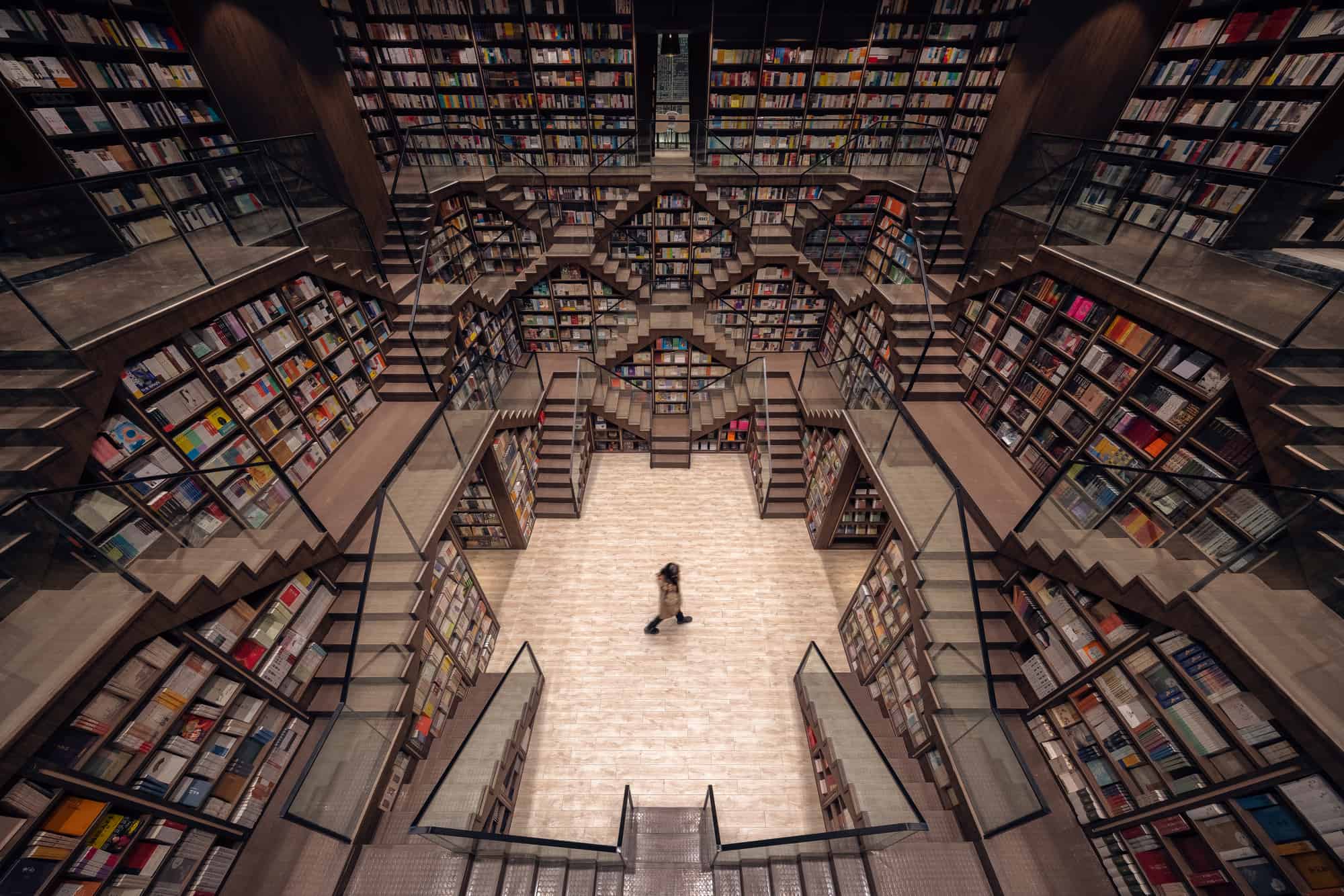Dear Authors and lllustrators,
I want to update you regarding the Book Fairs Share Every Story/Celebrate Every Voice case.
First, I want to apologize on behalf of Scholastic. Even if the decision was made with good intention, we understand now that it was a mistake to segregate diverse books in an elective case. We sincerely apologize to every author, illustrator, licensor, educator, librarian, parent, and reader who was hurt by our action. We recognize and acknowledge the pain caused, and that we have broken the trust of some of our publishing community, customers, friends, trusted partners,
and staff, and we also recognize that we will now need to regain that trust.
This case will be discontinued starting with our next season in January. For the remaining fairs in the fall, Book Fairs is working on a pivot plan as we speak. We will find an alternate way to get a greater range of books into the hands of children. We remain committed to the books in this collection and support their sale throughout our distribution channels.
Our commitment to BIPOC and LGBTQIA+ authors and stories remains foundational for our company. Scholastic believes in the basic freedoms of all
individuals. We oppose discrimination of any kind on the basis of age, race, creed, color, sex, sexual orientation, gender identity and expression, or national origin. We are committed to providing access and choice, and to helping young
readers develop critical skills needed to exercise democracy and build a society free
of prejudice and hate. Equally important, we pledge to stand with you as we redouble our efforts to combat the laws restricting children's access to books. This will not be our last communication on the matter, but we wanted to get this initial
Word out. We look forward to working to create a better and more just future together.
Sincerely,
Ellie Berger
President
Scholastic Trade Publishing
